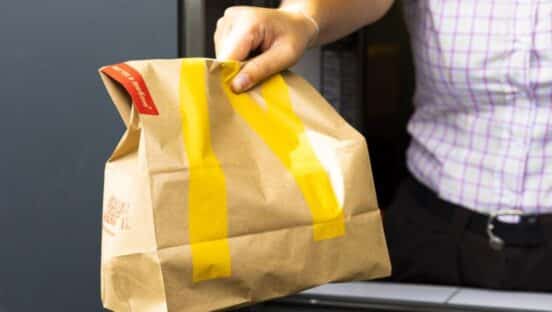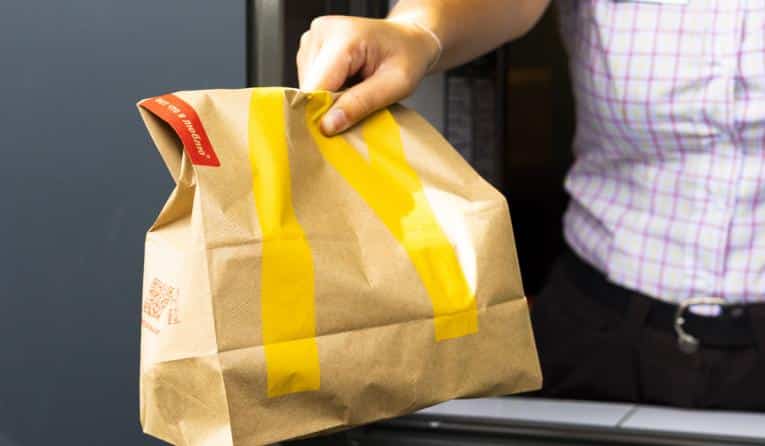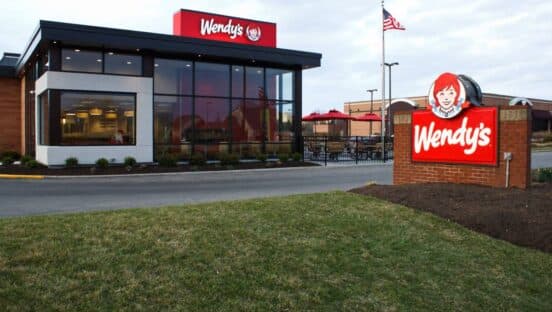Reports of higher menu prices and a handful of restaurant closures already are rolling in after California’s $20 fast-food minimum wage kicked in on April 1, resulting in a 25 percent raise for some half a million workers overnight.
Chipotle raised protein prices by 7-8 percent at 303 of its 476 active locations in the state this week, according to KeyBanc. The fast casual has said that effective pricing across the system will increase 80-100 basis points because of the new regulation. KeyBanc analyst Eric Gonzalez says that if the remaining 73 stores refrain from following suit, the chain’s effective pricing will fall toward the lower end of that spectrum, resulting in modest reductions in store-level margins as only the dollar impact is mitigated. If those stores do start charging more for protein, it would result in an effective price increase exceeding 100 basis points across the system, with a more limited effect on margins.
The New York Post examined menus at multiple restaurants across Los Angeles to determine if consumers are already bearing the brunt of the increased costs, yielding mixed findings. The most substantial increase occurred at a Burger King, with a Big Fish meal priced at $7.49 on March 29 soaring more than 50 percent to $11.49 on April 1. A Texas Double Whopper jumped from $15.09 to $16.89, an increase of nearly 12 percent. Elsewhere on the menu, prices were up anywhere from 25 cents to a dollar.
Hart House, a plant-based chain founded by comedian Kevin Hart, upped the prices of its milkshakes by $1. Most sandwiches went up by 50 cents while the cost for a large order of fries went from $4.49 to $5.99. In-N-Out Burger saw burgers go up by 25 cents and soft drinks go up by a nickel.
Los Angeles Daily News noted prices on several individual drinks went up by as much as 50 cents at several Starbucks locations in the area on Monday morning. Some Wendy’s locations reportedly raised prices on their value menu by 25-40 percent overnight. A Jr. Cheeseburger 4 for $4 meal now costs $5 at a store in Hollywood, while the price of a Crispy Chicken Biggie Bag and a Jr. Bacon Cheeseburger Biggie Bag increased from $5 to $7.
A Fatburger franchisee told Business Insider he was raising menu prices by about 8-10 percent along with scrapping employee vacations and cutting workers’ hours. An El Pollo Loco franchisee told the outlet she raised prices by about 3-4 percent leading up to the wage hike. She also said she doesn’t plan to replace workers who have quit recently, and like other El Pollo Loco locations in the state, her stores are adding self-order kiosks and automated dishwashers. Other labor-saving tech upgrades, like AI in the drive-thru, could be coming down the line.
McDonald’s franchisee Scott Rodrick took to CNN and Fox News to discuss the struggles facing the roughly 15,000 franchise restaurants in California that he says have been “unfairly targeted” by the new minimum wage. The vast majority of those businesses are family-run operations.
“I underscore family-owned because franchisees are not large, global corporations,” he told Fox News. “Our restaurant brands that we franchise might be national in name, but franchisees are local business operators.”
A 25 percent mandated wage increase overnight targeting a single sub-sector of one private industry has never been done before, he added. In San Francisco, where he opened his first McDonald’s restaurant, the minimum wage has risen through annual adjustments based on changes to the Consumer Price Index.
“The increases were phased over time, then subject to inflation,” Rodrick said. “It was a process that could be planned for. It was fair to employees to people who create the jobs. This particular massive overnight government mandate on wages is extraordinary and unprecedented.”
The fast-food giant’s franchisees are largely able to set their own prices, and while he’s taken around 5-7 pricing in response to the wage hike, there’s a limit to how much customers are willing to pay. Instead of reducing worker hours, Rodrick is looking at investing in more technology that will drive labor-efficient growth.
“Obviously, price has to be a consideration, but I can’t charge $25 for a quarter pounder with cheese,” he said. “The obvious move is to cut labor to reduce staff, but frankly, in my organization, that is the very last thing I want to look at… So, I’ve got to look at every option for business survivability. I’m going to have to explore more digital and delivery avenues. I’m going to have to make harder choices around big capital expenditures. Can I postpone remodeling a dining room? Can I put off investing in a new grill? Should I even open a new restaurant in California against these headwinds?”
Kerri Harper-Howie, a McDonald’s franchisee who owns 21 restaurants in the state, told KTLA 5 she’s raising prices while exploring other efficiencies to help keep the menu affordable.
“It’s not the only thing that we’re doing because the truth of the matter is, you can’t raise prices enough. It would be unaffordable,” she said. “There are cost savings that we can do behind the scenes, and other ways to be more efficient … but this means less profitability for us.”
The San Joaquin Valley Sun reported multiple fast-food restaurants in the Central Valley have shut down over the past few days. A Fosters Freeze abruptly shuttered on Monday, with the owner simply stating that he wouldn’t be able to survive the mandated wage increase. Five MOD Pizza locations in the state also closed their doors this week, according to the outlet.








